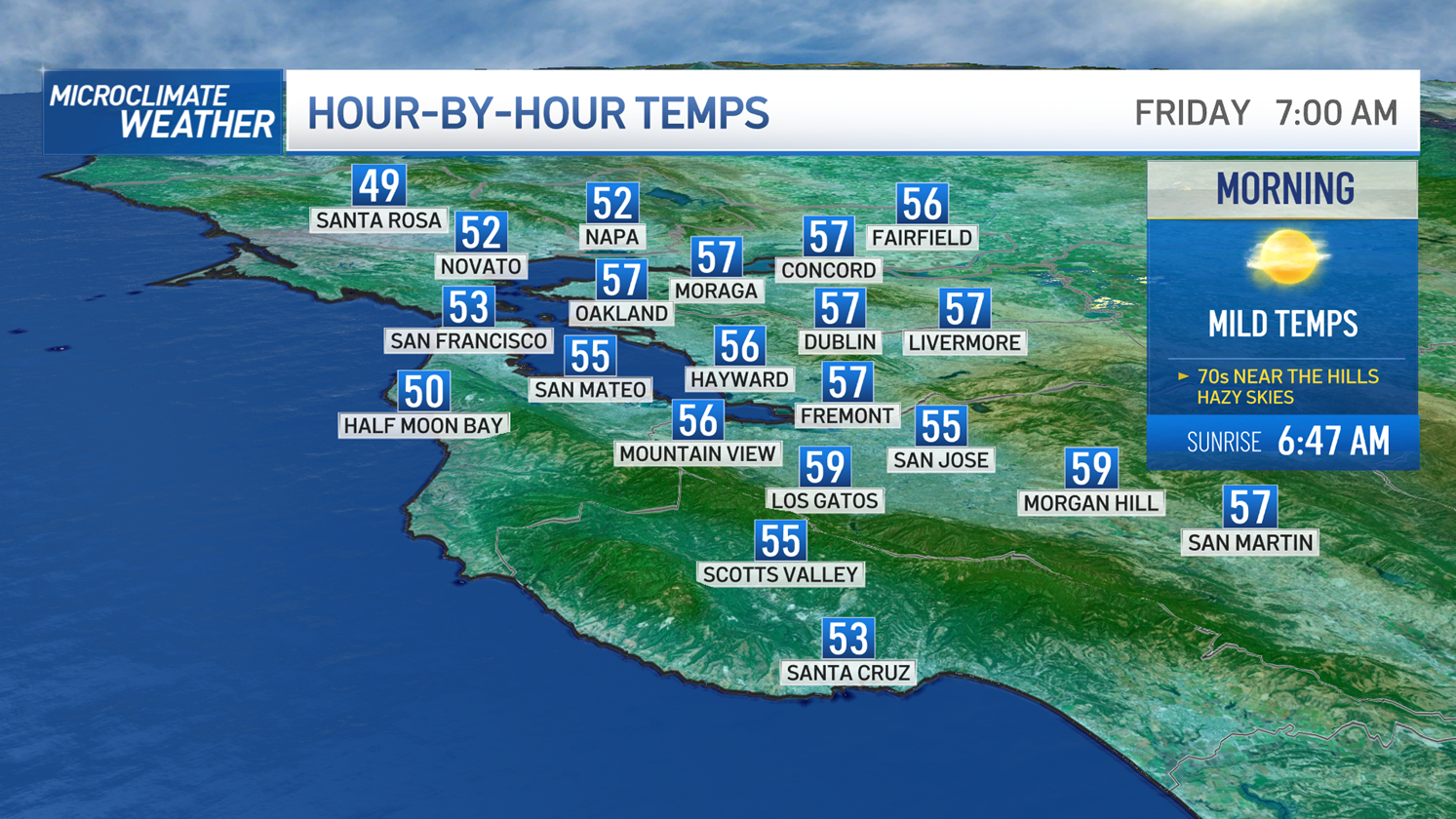With the Bay Area experiencing summerlike temperatures, it could soon start to affect an even bigger hole in many residents’ wallets.
Local ranchers said the early heatwaves and deepening drought are making it more expensive to raise cattle.
“We have to budget grass for the entire year. So, by selling these calves now, two months early, that’s less mouths to feed for the next couple of months,” said Bay Area rancher Justin Fields.
Get a weekly recap of the latest San Francisco Bay Area housing news. Sign up for NBC Bay Area’s Housing Deconstructed newsletter.
Part of budgeting grass is estimating how much rain to expect. The average was about 20 inches on the San Jose Hills. But this year, they’ve only had 13 inches and the higher temperatures are wiping out the little moisture that's left.
“Moving forward, we may have to buy supplemental feed,” said Fields.
It’s a predicament that most ranchers in California are facing more often and that’s not the only problem.
“When you have hot weather like this, especially this time of year, it's harder on the cattle overall. It’s an added stress to them. Calves can get sick and get pneumonia,” Fields told NBC Bay Area Thursday.
Adding it all up, that means consumers will need to pay more and expect to get less at the grocery store.
“There’s a lag for short in what’s happening here in the market and then what the prices are in the market,” said Sheila Barry, a livestock and natural resources advisor for the University of California’s Cooperative Extension. “As input prices go up, that includes the cost of fuel, the cost of hay, which is now also difficult to grow when you have a lack of water. So, all those costs go up, which raises the cost of production.”
According to the USDA, a combination of factors means prices for wholesale beef are likely to increase between 4% to 7% and dairy products will go up 4% to 5%.
That is not the only issue. The rising price of raising cattle also means that some farmers are selling off parts of their herd early and that has an impact on our land.
“In the Bay Area in particular, a lot of our cattle are grazing on public lands. A lot of them are on conservation public lands and they are contributing to the management of the lands,” Barry said.
It’s a topic that only gets hotter as temperatures continue to rise.




